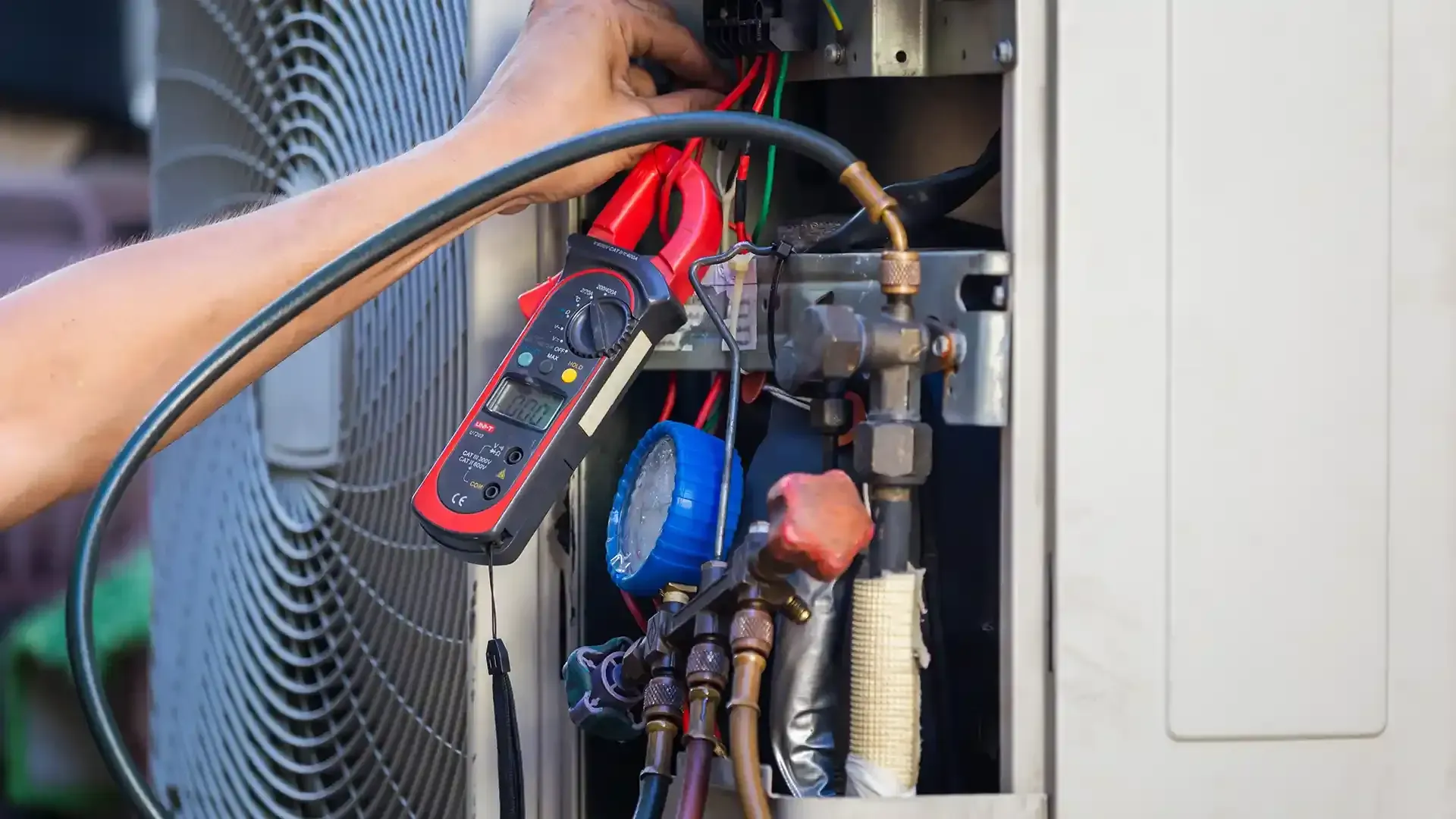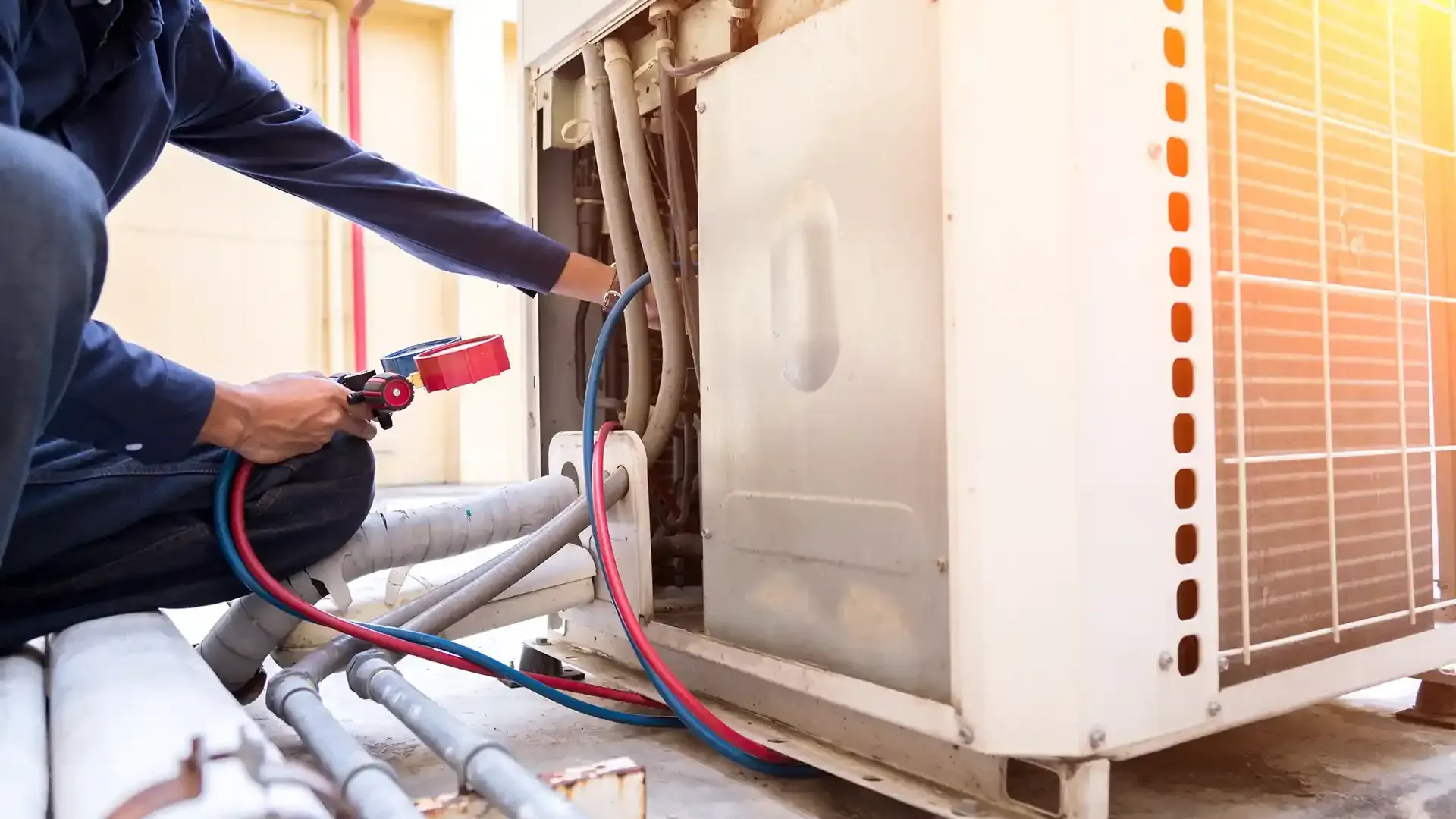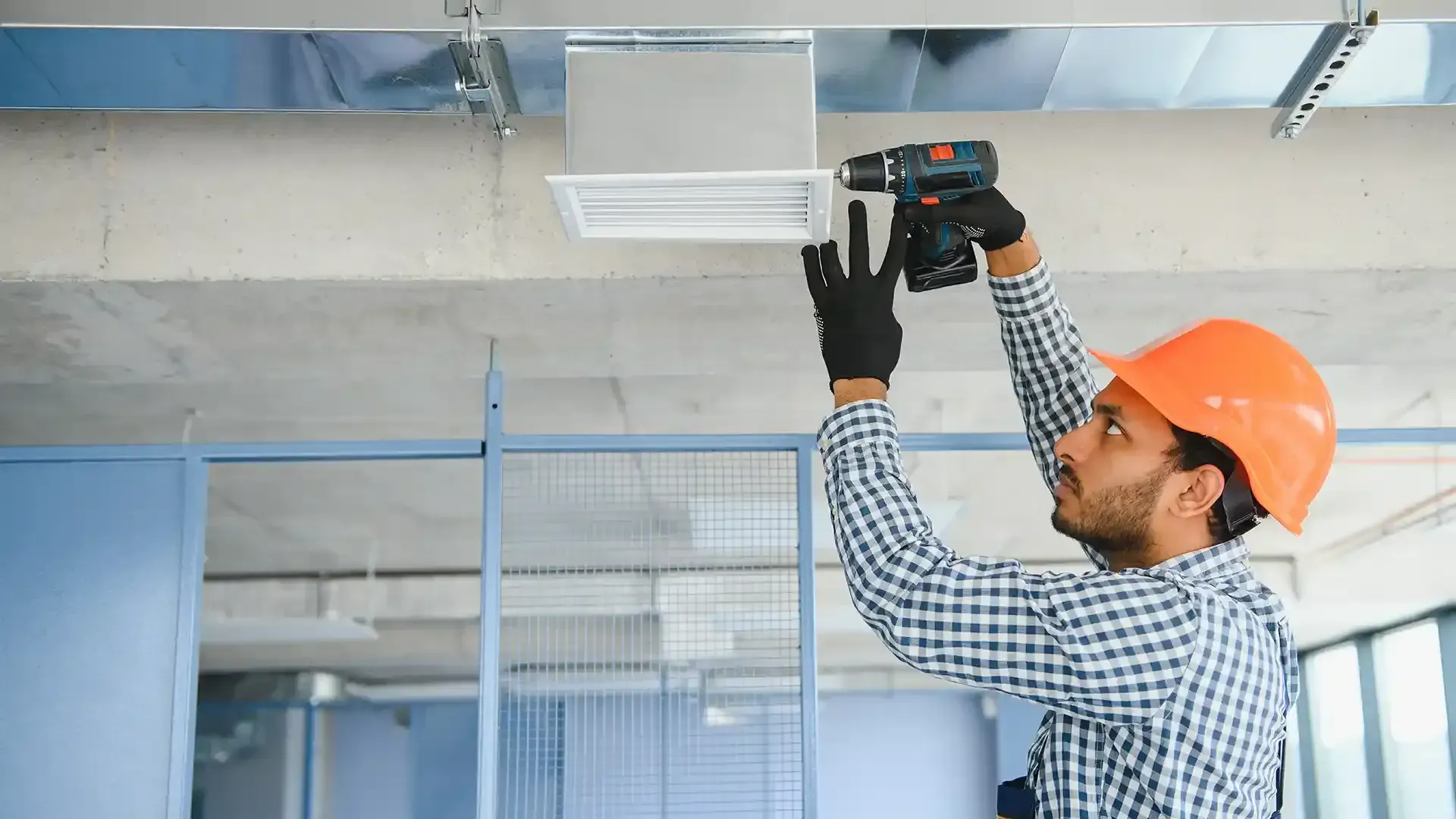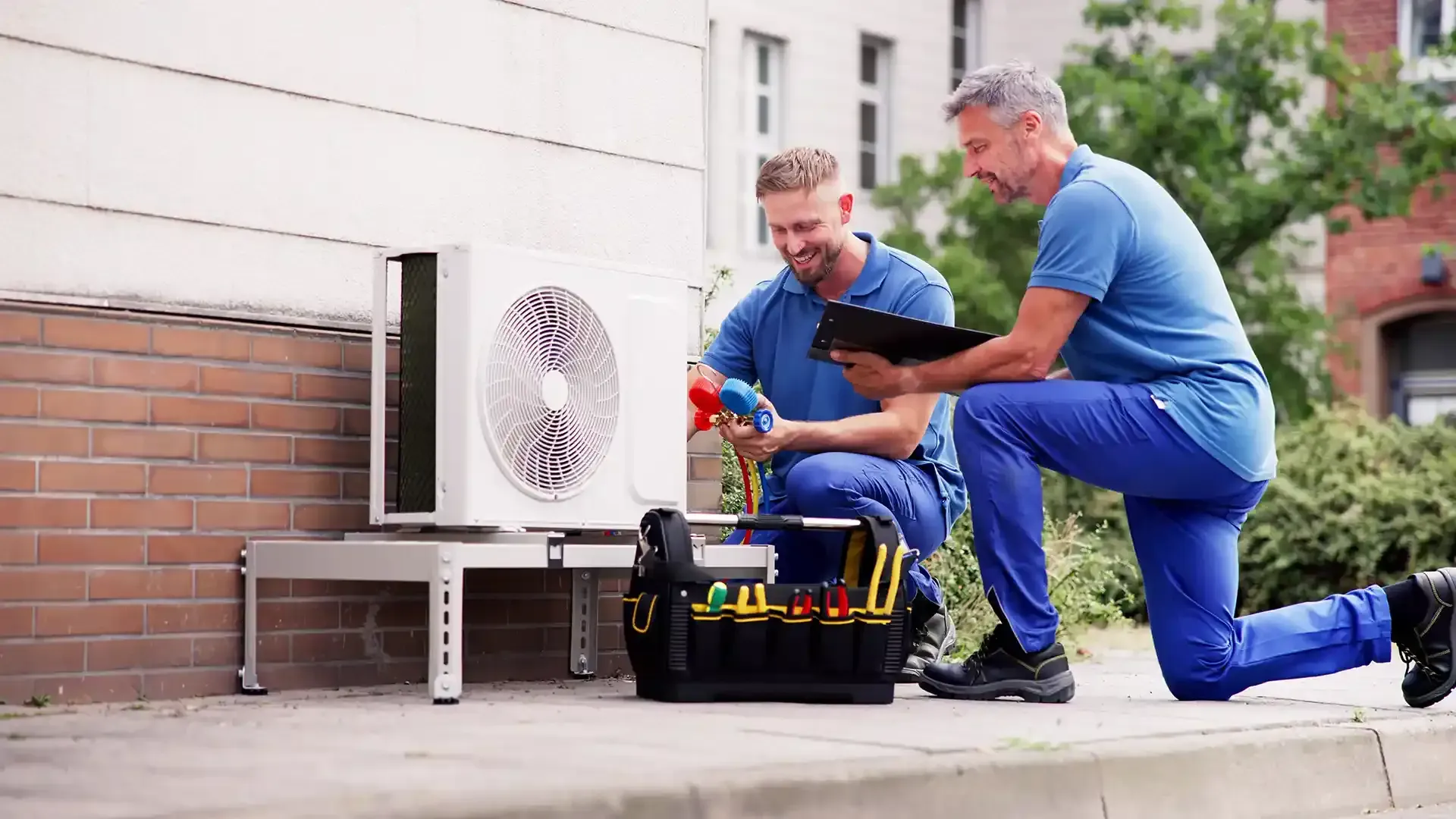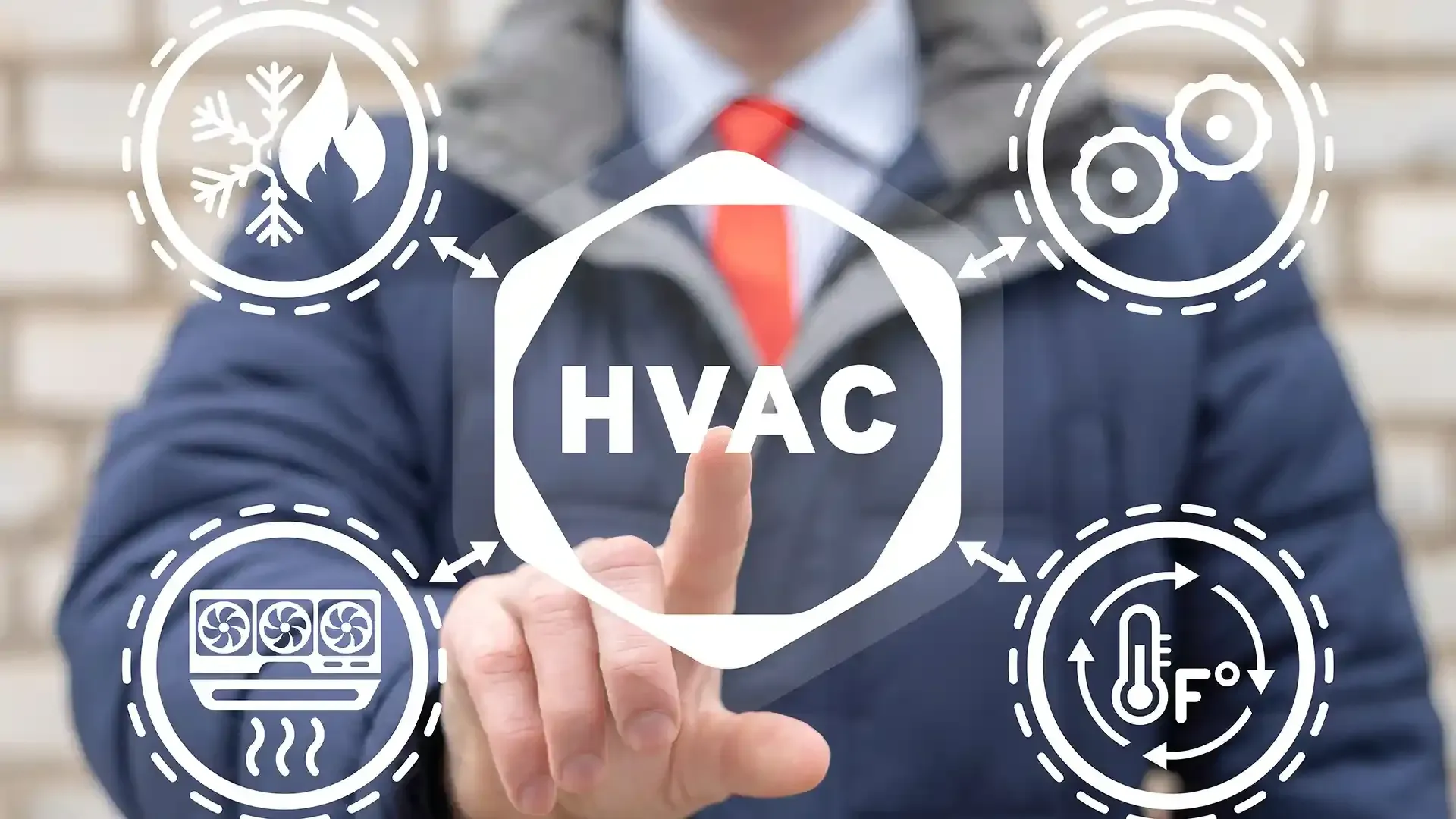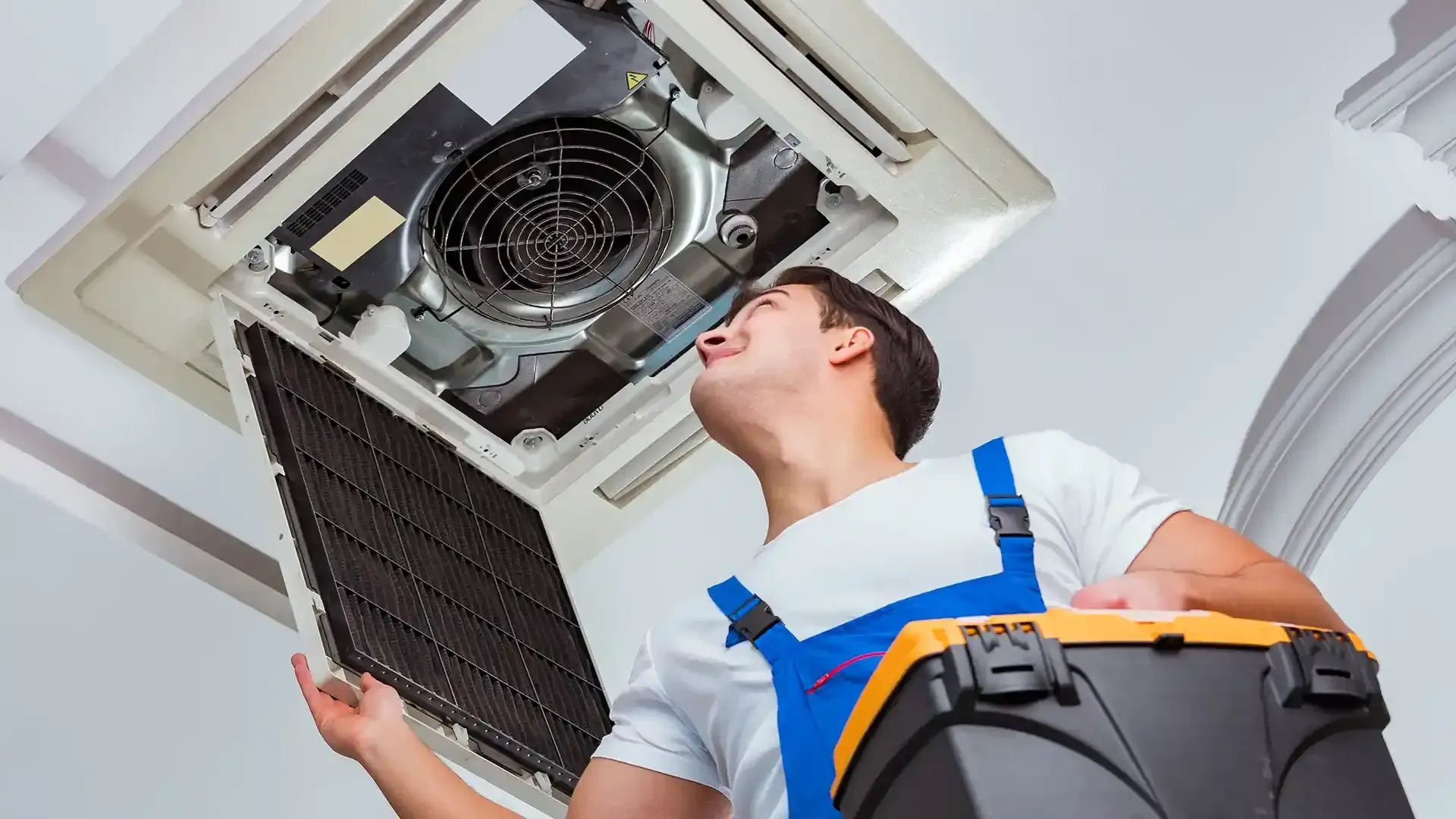The Science Behind How HVAC Heating Works and Keeps You Warm
The Science Behind How HVAC Heating Works and Keeps You Warm

Key Takeaways
- HVAC heating systems use advanced technology to efficiently keep homes warm, even in extreme temperatures.
- Central heating systems work by distributing heated air or water throughout your home, ensuring a comfortable indoor environment.
- The first modern HVAC system was invented in the early 20th century, revolutionizing how we heat our homes.
- Understanding how HVAC heating works is essential for maintaining your system’s efficiency.
- Regular professional maintenance is crucial to keep HVAC systems functioning efficiently and to avoid costly repairs or breakdowns.
- DIY heating repairs can often lead to bigger problems—it's always better to rely on professional services to maintain your HVAC heating system's optimal performance.
When temperatures drop and the chill of winter sets in, most of us turn to our trusty HVAC systems to stay warm. But how HVAC heating works to maintain a cozy atmosphere in your home is both fascinating and essential to understand. In this blog, we’ll explore the science behind
HVAC heating, look at how it keeps your home warm, and discuss the importance of regular maintenance by a professional. By the end of this post, you’ll know exactly how HVAC heating works and why it's so important to leave repairs to the experts.
How HVAC Heating Works
HVAC (Heating, Ventilation, and Air Conditioning) systems play a pivotal role in regulating your home's temperature. But when focusing specifically on the "H" in HVAC—heating—these systems use several methods to generate and distribute warmth. To understand how HVAC heating works, let’s break down the process:
The Process
At the core of any HVAC heating system is a heat source, whether it’s a furnace, heat pump, or boiler. These devices work by converting fuel or electricity into heat, which is then distributed throughout your home via ducts, pipes, or radiators. But to fully understand how HVAC heating works, you need to know the specific steps involved:
- Heat Generation: Your furnace burns fuel (natural gas, oil, or electricity) to generate heat. Inside the furnace, a heat exchanger warms the air.
- Air Distribution: A fan or blower circulates the heated air through ducts that lead to various rooms in your home.
- Temperature Regulation: A thermostat allows you to control the system. Once the desired temperature is reached, the furnace stops heating until the temperature drops again.
In essence, how HVAC heating works revolves around heat generation, circulation, and regulation based on your home's needs.
When Was HVAC Invented and How Did It Evolve?
Understanding how HVAC heating works requires a look back at its history. The concept of HVAC has roots in ancient civilizations, where rudimentary methods of heating homes, such as fireplaces and simple venting systems, were used. However, modern HVAC heating systems trace their origins to the early 20th century.
The breakthrough came in 1902 when Willis Carrier invented the first modern air conditioning system, revolutionizing climate control. This invention paved the way for further advancements in heating systems, evolving into the complex HVAC systems we rely on today. When was HVAC invented is not just a historical question—it shows us how modern living standards have been shaped by the innovations in climate control.
Carrier’s invention was initially designed to control humidity for a printing press, but it quickly became apparent that the technology could be adapted for both cooling and heating applications. Thus, HVAC as we know it began to take shape. When was HVAC invented is an important question for understanding the systems that now keep us warm.
Different Types of HVAC Heating Systems
While the basic principle behind how HVAC heating works is consistent, there are various types of systems designed to suit different homes, climates, and preferences.
Furnace Heating
The most widely used system, especially in colder climates, furnaces work by burning fuel to produce heat. Furnaces are popular for their ability to heat large spaces quickly and effectively. Modern furnaces are also highly energy-efficient, making them a cost-effective option in the long run.
Heat Pumps
Heat pumps are a versatile choice because they can both heat and cool your home. They work by extracting heat from the outside air (even when it's cold) and transferring it indoors. Although heat pumps are more energy-efficient in milder climates, they can struggle in very cold environments, making them less suitable for extreme winters.
Boilers
Boilers heat water, which is then circulated through pipes to radiators or under-floor heating systems. While less common in newer homes, boilers offer an excellent alternative to forced-air systems and provide steady, even heat without blowing air around, which can reduce allergens and dust circulation.
The Science Behind Heat Distribution
Once the heat is generated, it needs to be distributed evenly throughout your home to ensure comfort. This is where ducts and ventilation systems come into play. Proper insulation and ductwork are essential for efficiency, as poorly insulated systems can result in heat loss, reducing the overall effectiveness of your HVAC system.
Airflow and Ventilation
Efficient airflow is vital to the system's overall performance. Without it, heat cannot travel through the ducts to each room. This is why regular cleaning and maintenance of air filters and vents are crucial to avoid blockages, which can lead to inefficient heating.
Implications of Poorly Maintained HVAC Heating Systems
If an HVAC heating system isn’t properly maintained, it can lead to several problems. A dirty or faulty system has to work harder to maintain the desired temperature, which can result in increased energy bills and a shorter lifespan for the equipment. Moreover, neglected systems are prone to breakdowns, which often happen during peak seasons when you need heating the most.
Regular professional inspections are necessary to avoid these issues. Technicians can spot potential problems before they escalate, ensuring that your system continues to work efficiently. Knowing how HVAC heating works will also help you understand why regular professional maintenance is so important.
Why DIY Repairs Can Be Dangerous
Attempting to fix your HVAC system on your own may seem tempting, especially with all the "how-to" guides available online. However, HVAC systems are complex machines, and tinkering with them without the proper knowledge can result in damage or even safety hazards, such as gas leaks or electrical issues. Since when HVAC was invented, these systems have only become more sophisticated, requiring professional expertise to manage.
How HVAC heating works is not always as simple as it may seem. HVAC heating systems require professional tools and expertise to maintain and repair properly. A certified technician can not only diagnose issues correctly but also perform the necessary repairs safely, ensuring your heating system continues to run smoothly.
Why Professional HVAC Maintenance Is Key
Regular professional maintenance of your HVAC heating system can prevent a range of problems, from minor inefficiencies to full-blown system failures. Scheduling annual maintenance checks ensures that your system is cleaned, inspected, and adjusted to provide optimal performance.
By investing in professional services, you can extend the lifespan of your HVAC system, reduce energy costs, and enjoy peace of mind knowing that your system will keep you warm when it matters most.
If you're in Pennsylvania and need expert HVAC services, look no further than
Plumber Scranton. Located conveniently in Pennsylvania, USA, our team of certified professionals is ready to assist with all your HVAC heating needs. Whether you're curious about how HVAC heating works or require a maintenance check, give us a call at 570-243-0180. We're dedicated to keeping your home warm and comfortable throughout the cold months, offering reliable and professional services you can trust.
Conclusion
HVAC heating systems are an integral part of keeping your home comfortable during colder months. From furnaces and boilers to heat pumps, understanding how HVAC heating works can help you appreciate their value and recognize the importance of proper maintenance. While it may be tempting to try and fix minor issues yourself, it’s always best to leave HVAC repairs and servicing to professionals to avoid potential damage or safety hazards.
If you're still wondering how HVAC heating works and want to ensure your home stays warm this winter, contact Plumber Scranton today! Our experts will ensure your system is in peak condition, ready to keep you cozy no matter how cold it gets.
FAQs
Q: How often should I service my HVAC heating system?
A: It’s recommended to have your HVAC heating system serviced at least once a year to ensure optimal performance and catch any potential issues before they escalate.
Q: Can I perform HVAC maintenance myself?
A: While homeowners can perform basic tasks like changing air filters, it’s best to leave complex maintenance and repairs to professionals to avoid causing damage or safety risks.
Q: What is the most energy-efficient HVAC heating system?
A: Heat pumps are generally considered the most energy-efficient option, especially in mild climates, but furnaces and boilers can also be efficient if properly maintained.
Q: When was HVAC invented?
A: HVAC as we know it today was invented in 1902 by Willis Carrier. This invention revolutionized climate control, making modern heating systems possible.
CONTACT US TODAY
Send us a message using form below and we'll get back to you right away!
Contact Us
We will get back to you as soon as possible.
Please try again later.


